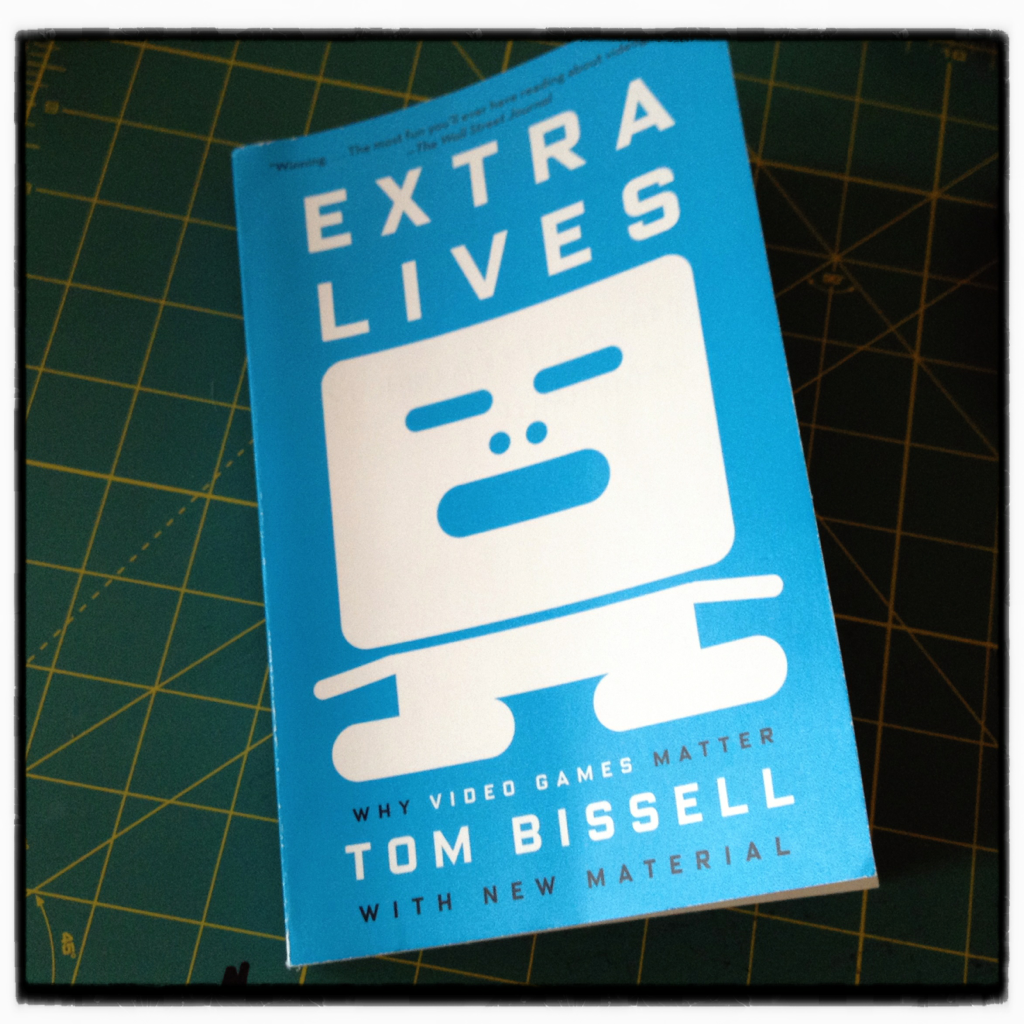Tom Bissell, Extra Lives: Why Video Games Matter
Finished Bissell’s Magic Hours and headed straight into this. Good read. Came to it through Mark’s review. Some notes:
The trouble with videogames is that they’re really fucking fun.
You love them because they’re fun, but you hate them because they take you away from what you feel like you should be doing:
The most consistently pleasurable pursuit in my life is playing video games. Unfortunately, the least useful and financially solvent pursuit in my life is also playing video games…
Building worlds is what (the) videogames (that I like) do best.
Talking about Red Dead Redemption in an interview, Bissell, the fiction writer, said:
There’s a sense of fiction in every video game… It creates a world for itself that you want to obey… Games tell stories best when they’re elliptical and ambiguous and there’s a sense of roaming and freedom…
Those worlds make maps in your mind:
I often wonder where these mental maps reside in my mind. The same place where I have stored my extensive understanding of Lower Manhattan or my sketchier grasp of central Paris?
And re-playing the best videos is like re-visiting a city you love: you go back, if not to re-live an experience, to have a new one.
As the game designer Jesse Schell writes in The Art of Game Design, “The game is not the experience. The game enables the experience, but it is not the experience.”
Storytelling is not the be-all, end-all device for making meaning.
“Interactivity sabotages storytelling.” That’s a quote from Bissell’s review of L.A. Noire.. He explains in the book:
the video-game form is incompatible with traditional concepts of narrative. Stories are about time passing and narrative progression. Games are about challenge, which frustrates the passing of time and impedes narrative progression.
There are two kinds of storytelling usually deployed in videogames:
One is the framed narrative of the game itself, set in the fictional “present” and traditionally doled out in what are called cut scenes or cinematic, which in most cases take control away from the gamer, who is forced to watch the scene unfold. The other, which some game designers and theoreticians refer to as the “ludonarrative,” is unscripted and gamer-determined—the “fun” portions of the “played” game—and usually amounts to some frenetic reconnection of getting from point A to point B.
In many narrative-based games, any meaning that derives from the game is often a battle between the game’s author(s) and the game’s player: “Authors had their say in static moments such as cut scenes, and gamers had their say during play.”
But there is a new model emerging in which a game’s meaning comes not out of the story, but more out of the actual gameplay — this type of game is benefitted by an “austere approach to narrative,” one that the company Valve (maker of Portal and Left 4 Dead 2) is very good at. In those games, very little is explained by the authors. (“The impulse to explain is the Achilles’ heel of all genre work.”)
For designers who want to change and startle gamers, they as authors must relinquish the impulse not only to declare meaning but also to suggest meaning. They have to think of themselves as shopkeepers of many possible meanings…



 betzistar
betzistar